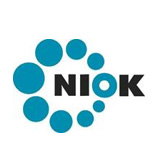Mission statement and vision:
Within CPM we want to apply fundamental knowledge on molecular diffusion and reactions in/on heterogeneous catalysts for exploration of new catalytic materials and processes of relevance for industry and society. Research projects are vehicles to develop scientific and personal capabilities of our group members.
The work in our group aims on building a bridge between new discoveries on heterogeneous catalytic reactions/materials and their application in practical processes.
Research projects are focusing on the following three themes:
1 Concentration management in liquid phase heterogeneous
catalysis
Mass transfer limitations often limit product yields in heterogeneous catalytic processes in liquid phase. Effective mass transfer in and around catalyst particles and consequently absence of concentration gradients are, for example, important to:
· maximize reaction rates, essential for process-intensification
· optimize selectivity via control over local concentration of reactants and products on all active sites in a catalyst
· measure true intrinsic kinetics
· perform in-situ characterization of catalysts under working conditions well defined throughout the catalyst
Projects are carried out to improve micro- and meso-structure of catalysts to control reactant and product concentrations during reaction. In addition, in-situ characterization techniques and tools for transient operation are being developed for liquid phase operation.
2 High yield selective oxidation
Conversion of short alkanes (such as methane, ethane, propane) into higher-value oxygenated compounds is of interest in the quest for new feedstock replacing oil. Selective oxidation reactions, however, show in general very low yields due to over-oxidation of partially oxidized products. For this reason new concepts in this field should be explored. Research focuses defective non-redox type oxides for activation of alkanes at high temperatures, alkane activation at ambient with poorly shielded earth-alkaline ions, as well as the use of soft oxidants like water and CO2.
3 Catalysis for sustainable processes for fuels and chemicals
The use of bio-related feedstock for production of energy carriers and chemical products asks for development of new catalytic materials and processes. Conversion of (fractions of) flash-pyrolysis-oil to fuels (hydrogen) and chemicals (di-ol’s) is being explored.
